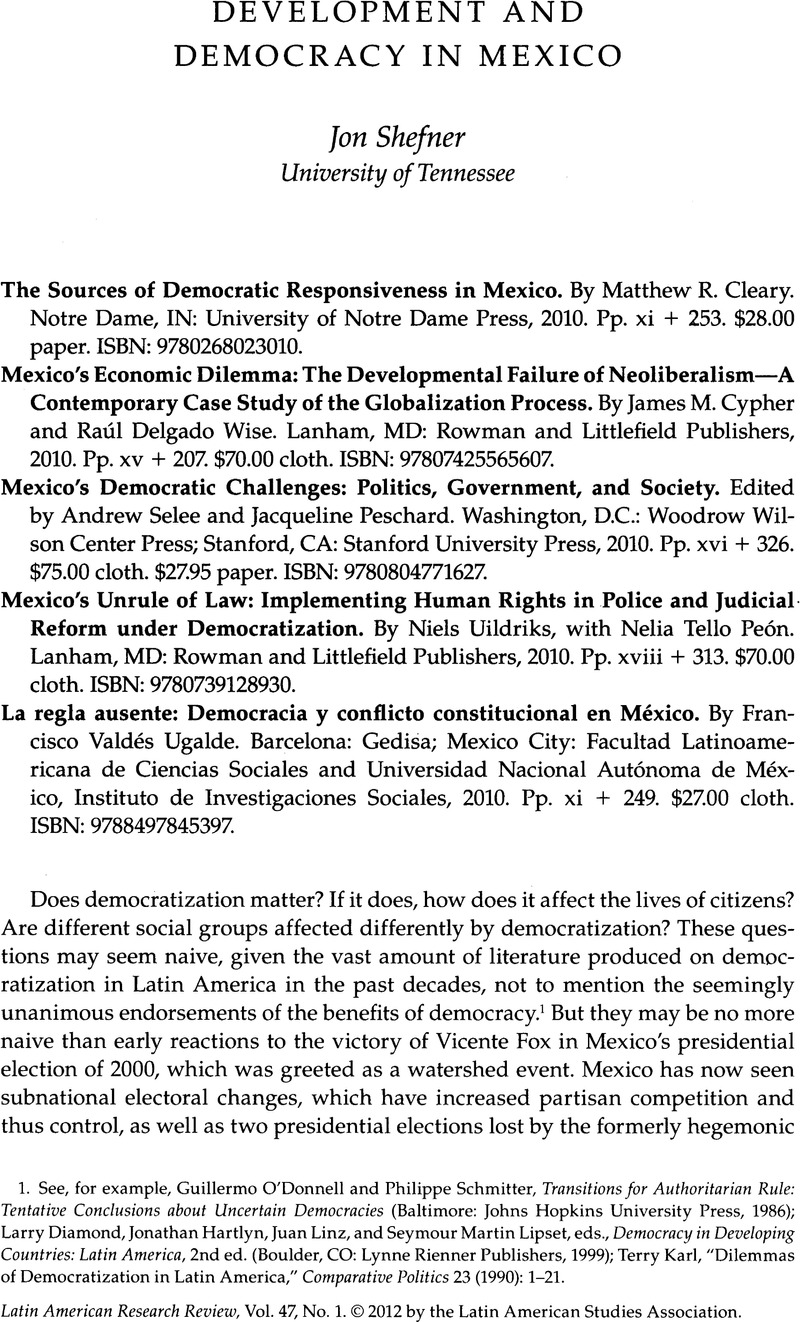No CrossRef data available.
Published online by Cambridge University Press: 05 September 2022

1. See, for example, Guillermo O'Donnell and Philippe Schmitter, Transitions for Authoritarian Rule: Tentative Conclusions about Uncertain Democracies (Baltimore: Johns Hopkins University Press, 1986); Larry Diamond, Jonathan Hartlyn, Juan Linz, and Seymour Martin Lipset, eds., Democracy in Developing Countries: Latin America, 2nd ed. (Boulder, CO: Lynne Rienner Publishers, 1999); Terry Karl, “Dilemmas of Democratization in Latin America,” Comparative Politics 23 (1990): 1–21.
2. On subnational elections, see Victoria Rodríguez and Peter Ward, eds., Opposition Government in Mexico: Past Experiences and Future Opportunities (Albuquerque: University of New Mexico Press, 1997); Wayne Cornelius, Todd Eisenstadt, and Jane Hindley, eds., Subnational Politics and Democratization in Mexico (San Diego: Center for U.S.-Mexican Studies, 1999).
3. Juan J. Linz and Alfred Stepan, Problems of Democratic Transition and Consolidation: Southern Europe, South America, and Post-Communist Europe (Baltimore: Johns Hopkins University Press, 1996), 77.
4. Paul Lawrence Haber, Power from Experience: Urban Popular Movements in Late Twentieth-Century Mexico (University Park: Pennsylvania State University Press, 2006); Jon Shefner, The Illusion of Civil Society: Democratization and Community Mobilization in Low-Income Mexico (University Park: Pennsylvania State University Press, 2008).
5. Many studies in this area still focus on the problematic concept of civil society. See, for example, Alberto J. Olvera, “The Elusive Democracy: Political Parties, Democratic Institutions, and Civil Society in Mexico,” Latin American Research Review 45 (2010): 78–107.
6. Jonathan Fox, Accountability Politics: Power and Voice in Rural Mexico (Oxford: Oxford University Press, 2007); Leonardo Avritzer, “Living under a Democracy: Participation and Its Impact on the Living Conditions of the Poor,” Latin American Research Review 45 Special Issue (2010): 166–185; Adam Przeworski, Michael E. Alvarez, José Antonio Cheibub, and Fernando Limongi, Democracy and Development: Political Institutions and Well-Being in the World, 1950–1990 (Cambridge: Cambridge University Press, 2000).